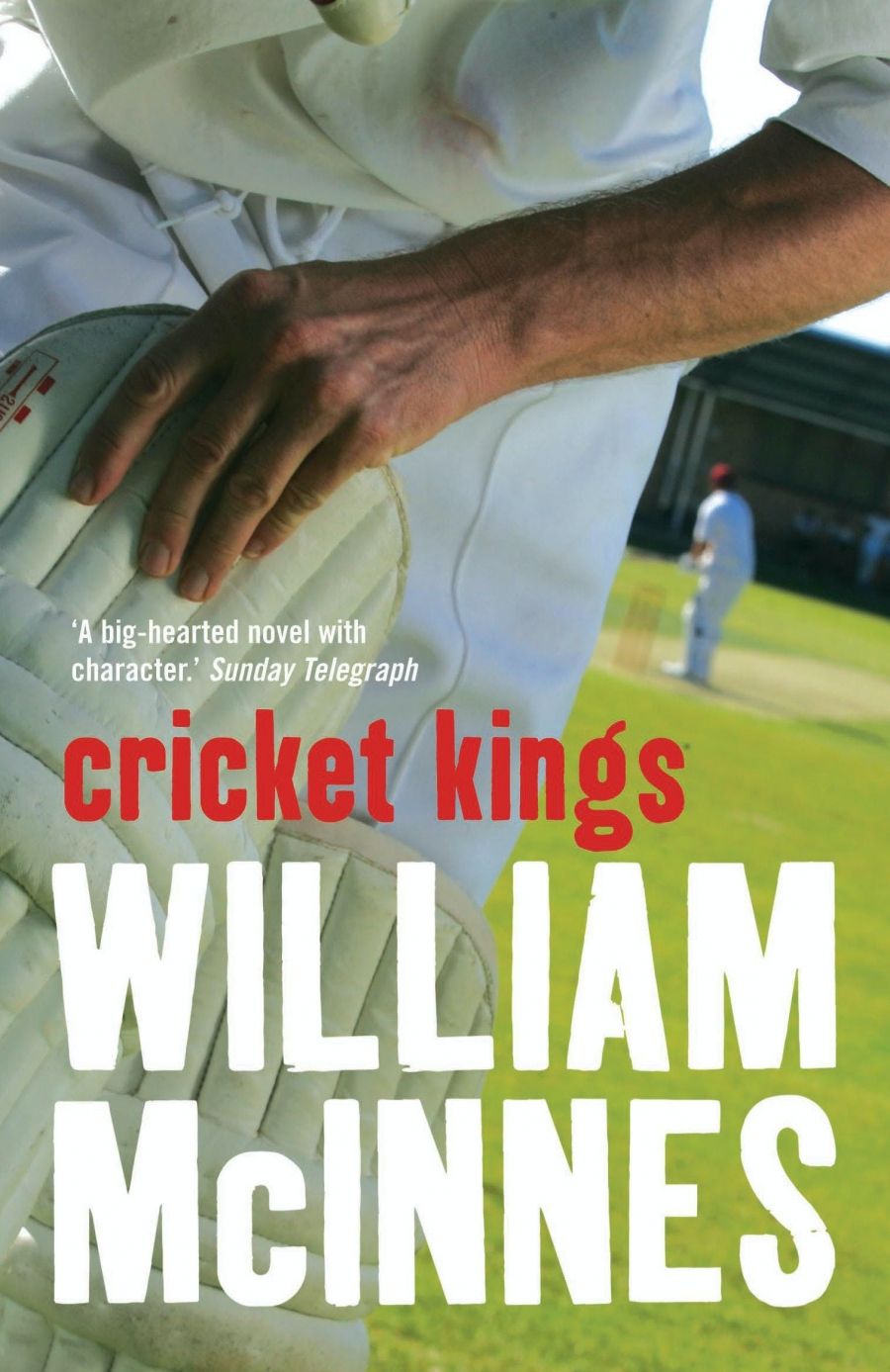
- Free Article: No
- Contents Category: Fiction
- Review Article: Yes
- Online Only: No
- Custom Highlight Text:
It was the first game for the season in some halcyon year of my cricketing past. We’d scraped together a team, but the other mob was rumoured to be a couple short. Their first three batsmen were competent enough and made a few. Then a collapse brought number eight to the wicket. Impeccably clad, he was one of those blokes who puts his gloves on after taking guard and then spends minutes surveying the field, pointing to each position with his bat, as if burning them into his tactical memory. At last he faced his first ball, which went straight through him and took the middle and off stumps out of the ground. ‘Bad luck, mate,’ said one of our blokes, with a kindness the ensuing months would erode. ‘First knock for the season, eh?’ The beautifully attired number eight looked at him in astonishment. ‘First knock ever,’ he said.
- Book 1 Title: Cricket Kings
- Book 1 Biblio: Hodder, $32.95 pb, 282 pp
McInnes counterposes the two worlds: the idyll of grade cricket on summer Saturdays, and the tangle of small pleasures, stresses and routines that constitute contemporary Australian suburban life. He does this first by showing the Friday efforts of his ‘hero’, Chris Andersen, to juggle the end of the working week with the need to drum up a team and the calls of family life; and then by containing the rest of the novel’s action within the space of the game. It is played on a glorious hot day, between Trinity and Chris Andersen’s Yarraville West Fourths – ‘The mighty Fourths … like some old sad battalion they lurched on’ – at their home ground, the Cec Bull Oval.
As McInnes knows very well, cricket, alone among team games, has a ‘meditative, almost dreamlike mode that would take a mind anywhere and perhaps nowhere. All that was needed was a prompt, a nudge down the path of thought and reflection.’ Fielding at square leg or deep fine, your face reddening under your hat and the bees droning among the dandelions that escaped the mower near the boundary, you can lose yourself pleasantly in a reminiscence or fantasy that only the hiss of the ball rocketing catchably away to your left can interrupt.
And so, as the game ebbs and flows in its time honoured way – or in the case of the mighty Fourths, ebbs and ebbs – and the players strive, banter, misfield and drop catches, the fabric of their lives outside the contrived world of the Cec Bull Oval on that hot Saturday is evoked and pieced together, and their mysteries, sadnesses, losses and joys are quietly arrayed. Lachlan, for example, Chris’s young son, fielding in the deep and brought in to make up the numbers, finds ‘that layer of noise, that symphony you could hear as you stood on Cec Bull Oval’: a plane banking, music from a nearby house, a baby crying. There is Michael Martin, like Heming-way’s Nick Adams, desperate not to face the horrors of the past, submerging himself in the drowse of the game and memory. There is music, literature and history in the mix of chat and recollection. And there is Chris, of course, whose reflections on renovations, vasectomy, barbecues and other suburban realities are pungent and often hilarious. Through all this gradually ramifying network that is sustained by the hours, sessions and rituals of the most ceremonial of games, runs a constant low-key debate about race and tolerance.
The device creaks a bit as it progresses. The Fourths are so hopeless that the game loses its immediacy and wavers at times into being merely an excuse for individual stories; which of course it is, but a balance still needs to be observed. The writing varies: excellent at times, as in the depiction of Chris Andersen’s pleasant family chaos; less assured in the dialogue where, though it seems strange to say it of such an accomplished man as McInnes, the first novelist’s reluctance to trust the reader results in repetitions (‘he said’, ‘she said’, ‘he asked’) and an oversupply of ordinary jokes (Livy Jones, for example, was allowed about fifty more farts than he was entitled to).
But this engaging, generally well-written, interesting novel is a lovely read. To enjoy it, you don’t have to feel your stomach tighten with Pavlovian nervousness every time you smell newly mown grass on the local oval in early October. But it helps.


Comments powered by CComment